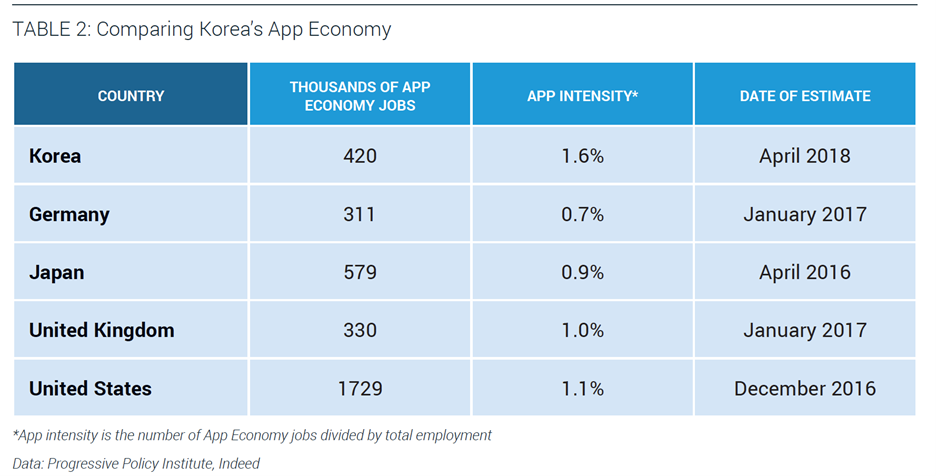By our analysis, Korea’s “App Economy” is one of the strongest in the world. In our 2018 study, the Progressive Policy Institute (PPI) estimated that Korea had 420,000 App Economy jobs, amounting to 1.6% of the workforce (see reproduced table below). This figure for “app intensity” was considerably higher than Japan, the United Kingdom, Germany, and even the U.S. at the time (though our latest estimate pegs American app intensity at 1.7% as of August 2020).
Moreover, as of 2020, 8 out of the top ten app companies in Korea were Korean-headquartered, according to download estimates from App Annie. By comparison, only 1 out of the top ten app companies in Germany were German-headquartered. Korea has a vibrant domestic App Economy that other countries would be envious of.
But despite this record of success, the Korean government is considering legislation that would dramatically change the app business environment. The legislation—which would amend Korea’s Telecommunications Business Act–would prohibit online app stores from requiring app developers to use the app store’s payment systems for in-app purchases. In effect, this would be equivalent to forcing a brick-and-mortar retailer to allow competitors to set up alternative checkout lanes in their stores.
The first question is: Why try to fix something that isn’t broken? Korean app developers are prospering under the current system and creating well-paying jobs. Why take the risk that a new system will turn out worse?
The second question is: Why undertake measures that would potentially accelerate “decoupling” Korea’s economy from the United States? The legislation under consideration would primarily affect U.S. tech companies, feeding the current American desire to shorten supply chains and build up internal tech production capacities. Korea and the U.S. will always be allies and friends, but in today’s political environment, lawmakers should pay attention to building bridges, not destroying them.
This table is reproduced from “Korea’s App Economy,” May 2018, Progressive Policy Institute. Data for other countries was current in 2018 when table was published. The latest numbers are available on request.
